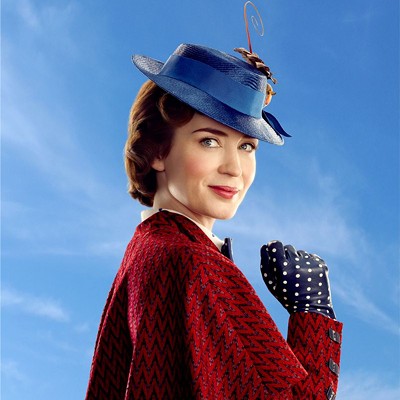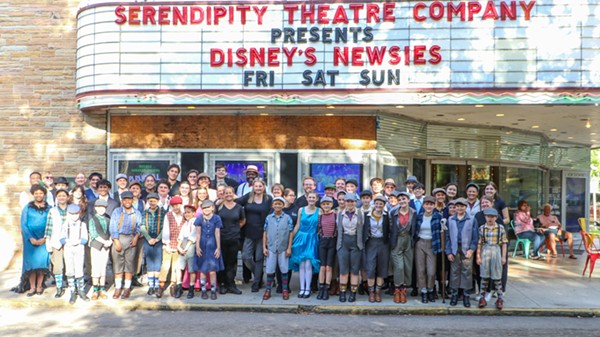THE WICKER MAN The 1973 cult offering The Wicker Man is one of those compelling “mood pieces” that could only have emerged from the early 70s. Like other fine works of its period (including two by Nicolas Roeg, Don’t Look Now and Walkabout), it employs allegory and atmosphere to amplify its thin veneer of the supernatural - it registers as a fantasy flick in our minds more than it does on the screen. The Wicker Man, about a repressed detective (Edward Woodward) who visits a remote island off the coast of Scotland in search of a missing girl and in the process unearths a decadent and primitive society, was ultimately an examination of competing religions -- Christianity vs. paganism -- and as such had a field day offering up a slew of ambiguous interpretations that (depending on the viewer) either spoke out against rigid Christian doctrine, against reckless hedonism, or against any form of organized worship. Writer-director Neil LaBute’s remake is a disastrous miscalculation, shucking religion completely and instead fashioning the tale as a battle between upstanding male dominance and wicked feminist doctrine. LaBute has repeatedly faced charges of misogyny (see In the Company of Men, The Shape of Things and Your Friends & Neighbors) but never before has he appeared quite this terrified of emasculation -- it’s as if John Bobbitt had gotten hold of a movie camera and made a film in which all the female characters were based on his interpretation of Lorena Bobbitt. Nicolas Cage plays the befuddled protagonist here, no longer a God-(and sex-)fearing cop but rather a generic Hollywoodized detective (no spiritual side, haunted by a past tragedy, forever popping pills, etc.). Hampered by its fondness for annoying dream sequences, the film mopes along drearily, the only jolts coming when we witness an unexpected rage in Cage as he punches and kicks several women (including teenage girls); then again, these scenes are perfectly in line with LaBute’s apparent worldview.
HOLLYWOODLAND Before Christopher Reeve and Brandon Routh, there was George Reeves. Kirk Alyn may have originated the role of Superman on screen in a pair of 1940s serials, but it was Reeves who was most identified with the part, thanks to the hit TV series that ran throughout much of the 1950s. But in 1959, Reeves apparently committed suicide, though speculation has always run rampant that the hulking actor was actually the victim of foul play. Hollywoodland is a fictionalized take on this theory, centering on a smalltime detective (Adrien Brody) as he sets off to uncover the truth. Was Reeves (Ben Affleck) murdered by his opportunistic girlfriend (Robin Tunney), a gold digger who ran out of patience once she realized his career would never amount to more? By his older lover (Diane Lane), who feared she might be losing him for good? By the woman’s husband (Bob Hoskins), a powerful studio executive known for tying up loose ends? Or, in the final analysis, did Reeves really pull the trigger himself? Hell if anyone knows for sure, and that includes the makers of this film, who trot out every conceivable scenario without ever committing to one. Still, that’s hardly a flaw, as the open-endedness allows this handsome picture to tantalizingly jump back and forth between its colorful characters. The performances are uniformly fine -- Affleck has been a punching bag for so long now that his solid work here will surprise many -- and the movie richly offers nostalgia-twinged visions of vintage LA.
THE ILLUSIONIST Set in Austria, The Illusionist stars Edward Norton as Eisenheim, an enigmatic stage magician so skilled at his profession that the locals suspect he might actually possess otherworldly powers. One of the few skeptics is Crown Prince Leopold (Rufus Sewell), a cruel ruler who sets out to prove that Eisenheim is a fake. He enlists the aid of the corrupt Chief Inspector Uhl (Paul Giamatti), yet matters become more tangled when it’s revealed that Leopold’s fiancee (Jessica Biel) was once Eisenheim’s childhood sweetheart. For a good while, The Illusionist is topflight entertainment, with its lush period setting, its assemblage of captivating magic tricks, and a delightful relationship between Eisenheim and Uhl, two men sharing a wary respect for each other (both Norton and Giamatti are excellent). But then the film makes the fatal mistake of morphing into a mystery, the type that’s agonizingly easy to figure out even before its gears can really be placed in motion. Viewers who can’t figure out the big twist should dig out those old Encyclopedia Brown paperbacks and begin rebuilding their sleuthing skills from there.
WORLD TRADE CENTER The most startling thing about World Trade Center is that it’s by far the least controversial movie Oliver Stone has ever made. Conversely, it’s also hard to get terribly excited over the final product. World Trade Center focuses on the Port Authority Police Department officers who would eventually be recognized as two of the only 20 people to be rescued from the rubble of the Twin Towers. September 11 begins as any other day for John McLoughlin (Nicolas Cage) and Will Jimeno (Michael Pena), but like everyone else on that fateful morning, they soon are having to digest incomplete messages involving an airplane crashing into one of the towers. Springing into action, they’re among the men who enter the building with the intention of aiding any potential survivors, even as they try to decipher additional news items suggesting that the second tower has also been hit by a plane. Timing’s not on their side, however, as the towers collapse just as they begin making their way up from the ground to the floors above. Their colleagues lose their lives, but John and Will somehow survive, though at a great price. Meanwhile, their wives (Maria Bello and Maggie Gyllenhaal) wait impatiently at their respective homes with other family members, eager to find out whether their spouses are dead or alive. Working from a script by first-timer Andrea Berloff, Stone keeps his rabble-rousing methods fully in check -- even his typically frenetic shooting style has been replaced by a more somber m.o., with lengthy camera holds on saintly faces and nary a rapid jump-cut in sight. Unfortunately, the end result is a movie that feels oddly impersonal. Despite the strong performances by Bello and Gyllenhaal, the numerous sequences centering on the strong-willed wives are no different than similar moments from countless WWII dramas, when the women are seen staring wistfully out of windows while their men are off trying to make the world a better place. Like United 93, World Trade Center also tries to keep politics out of the picture; instead, it focuses on the day as a shining example of American solidarity, before the government began reshaping the tragedy for its own exploitive means. Yet for all of Stone’s timidity, the material brings out some undeniable truths. The movie’s most poignant sequence comes when Stone chooses to briefly show the international community learning about this monstrous terrorist attack. It’s the moment when the U.S. had the sympathy and support of practically every country around the globe, and as we watch this segment, we’re heartbroken upon realizing how the Bush Administration has spent the last five years pissing away all that goodwill, in effect turning us into a country that’s now feared and despised rather than embraced and adored. A political perspective also appears through the character of Dave Karnes (Michael Shannon), a Marine who claims God personally ordered him to Ground Zero. Karnes is clearly a hero -- he’s the guy who found McLoughlin and Jimeno -- yet he’s also the sort of mindless warrior too easily swayed by those in charge. He swears vengeance against those who destroyed the WTC, a sentiment we can all share. Except a footnote reveals that he served two tours of duty in Iraq -- like so many others, fighting in the wrong war for the wrong reasons. Stone prefers that we don’t think too much of such sticky situations, and that’s his prerogative. This nonpartisan treatment certainly allows the movie’s wholesome humanity to shine through, which in turn leads to some strong sequences detailing the manner in which John and Will deal with their hellish situation. This is often powerful stuff, but in the final analysis, it’s still a sanitized, Hollywood version of 9/11. For a harrowing experience that feels more like the real deal, United 93 is the one to see. It hits DVD on September 5.
TALLADEGA NIGHTS: THE BALLAD OF RICKY BOBBY Like Spam, energy drinks and the music of Yanni, Will Ferrell is one of those acquired tastes that satisfy devotees while perplexing everyone else. While some folks swear by his 2004 starring vehicle Anchorman: The Legend of Ron Burgundy, I’m not one of them. This one-note movie struck me as annoying rather than amusing, meaning I wasn’t exactly anticipating Ferrell and director Adam McKay reteaming for a comedy about a NASCAR redneck. My mistake. Talladega Nights: The Ballad of Ricky Bobby is often uproarious, and it’s clever in a way that Anchorman rarely attempted. Like Ron Burgundy, Ricky Bobby is also an egotistical, none-too-bright boor. “I piss excellence,” he declares, and his standing as NASCAR’s best driver certainly signals that he’s excellent at something. He has a best friend (John C. Reilly) who’s even dumber than he is, a blonde trophy wife (Leslie Bibb) who’s always looking to get ahead, and two obnoxious sons named Walker and Texas Ranger (“But we call him TR for short”). Ricky has spent his life trying to work out issues with his deadbeat dad (Gary Cole, delivering the film’s shrewdest comic performance), but that doesn’t excuse his repellent behavior and the way he takes everyone and everything for granted. Clearly, Ricky Bobby is primed to receive a comeuppance, and it arrives in the form of Jean Girard (hilarious Sacha Baron Cohen), a French homosexual race car driver whose prowess on the track leads to Ricky’s fall from grace and his subsequent (and humbled) climb back to the top.
PIRATES OF THE CARIBBEAN: DEAD MAN’S CHEST At 145 minutes, Dead Man’s Chest ends up providing too much bang for the buck. That’s just about the same running time as its predecessor, but that film wore its length better, given that the screenplay had its hands full establishing setting, introducing characters, hammering out its weighty plot, and still finding time to include action scenes in the best swashbuckling tradition. Certainly, those expecting amazing feats of derring-do won’t be disappointed by this new film. The effects-driven action scenes are clearly the picture’s highlights, and they alone make Dead Man’s Chest worth the price of admission. But on the heels of Superman Returns, a movie of substance that nevertheless made sure not to skimp on its adventure quota, this one too often rings hollow. The first Pirates felt like both a stand-alone movie and the theme park attraction on which it was based; this one just feels like a roller coaster ride, full of momentary thrills but leaving little in its wake except a sudden desire to rest for a minute. Those who found Curse’s plot a bit on the convoluted side might as well not even attempt to unscramble the goings-on this time. The central thrust finds Captain Jack Sparrow (Depp) tangling with the ghostly Davy Jones (Bill Nighy) in an effort to save his own soul from damnation; it’s possible that his scheme will require sacrificing his friends Will Turner (Orlando Bloom) and Elizabeth Swann (Keira Knightley), but that’s a compromise the self-serving Jack can accept. Depp’s still a lot of fun as the scurrilous Sparrow, but a headline-grabbing performance that seemed blazingly original the first time around no longer has the power to surprise, and there’s no effort on the parts of scripters Ted Elliott and Terry Rossio to make up for that by deepening the character in any way. ç
But the best fantasy tales are often the ones in which the special effects are subservient to the characters, not the other way around. Depp’s still a lot of fun as the scurrilous Sparrow, but a headline-grabbing performance that seemed blazingly original the first time around no longer has the power to surprise, and there’s no effort on the parts of scripters Ted Elliott and Terry Rossio to make up for that by deepening the character in any way. Bloom’s Will and Knightley’s Elizabeth are even less developed, and except for a couple of quips (him) and tirades (her), it’s hard to remember anything of substance that they do during the course of the film. Instead, it’s the makeup-sporting actors who steal this one, particularly Nighy as the ruthless Davy Jones and Stellan Skarsgard as Will’s spectral father, “Bootstrap” Turner. A word of warning: Since this is the middle film in a proposed trilogy, it follows the lead of The Empire Strikes Back, Back to the Future II and The Matrix Reloaded. In other words, there’s a beginning and a middle, but no end: In true cliffhanger fashion, the picture concludes with one final twist, requiring viewers to come back in a year to see how the storyline plays out. Here’s betting that this will be one return engagement that audiences won’t skip.
n

























